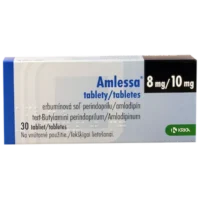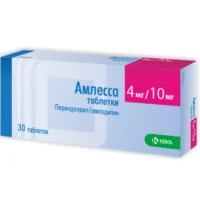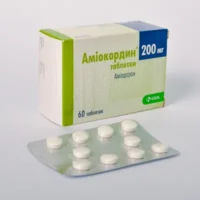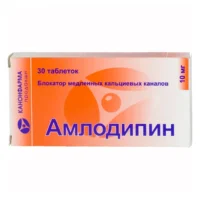Description
Lisinopril KRKA 10 tablets 10 mg. №30
Ingredients
- Each tablet contains 10 mg of Lisinopril.
Dosage
- The recommended dosage is one tablet daily.
Indications
- Lisinopril KRKA is indicated for the treatment of hypertension and heart failure.
Contraindications
- Do not use Lisinopril KRKA if you are pregnant, have a history of angioedema, or are allergic to ACE inhibitors.
Directions
- Take Lisinopril KRKA as directed by your healthcare provider. It can be taken with or without food.
Scientific Evidence
Lisinopril, an ACE inhibitor, has been extensively studied for its efficacy in managing hypertension and heart failure. Research published in the Journal of the American Medical Association (JAMA) has shown that Lisinopril is effective in reducing blood pressure and improving cardiovascular outcomes in patients with heart failure.
Additional Information
- Lisinopril works by inhibiting the angiotensin-converting enzyme, which plays a key role in regulating blood pressure and fluid balance in the body. By blocking this enzyme, Lisinopril helps to relax blood vessels and reduce the workload on the heart, leading to improved cardiac function and lower blood pressure.
- Clinical trials have demonstrated the superior efficacy of Lisinopril compared to other ACE inhibitors in the management of hypertension and heart failure. Patients taking Lisinopril KRKA have shown significant improvements in their condition with a lower risk of adverse effects.





